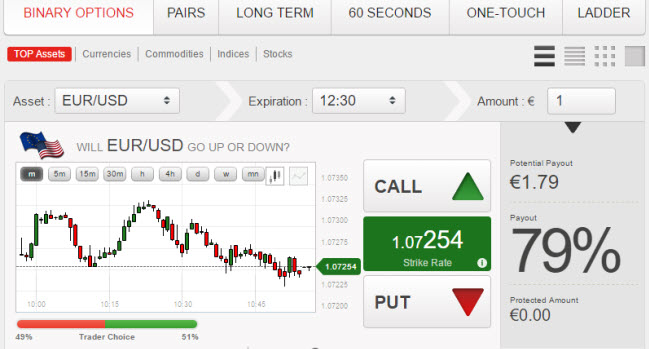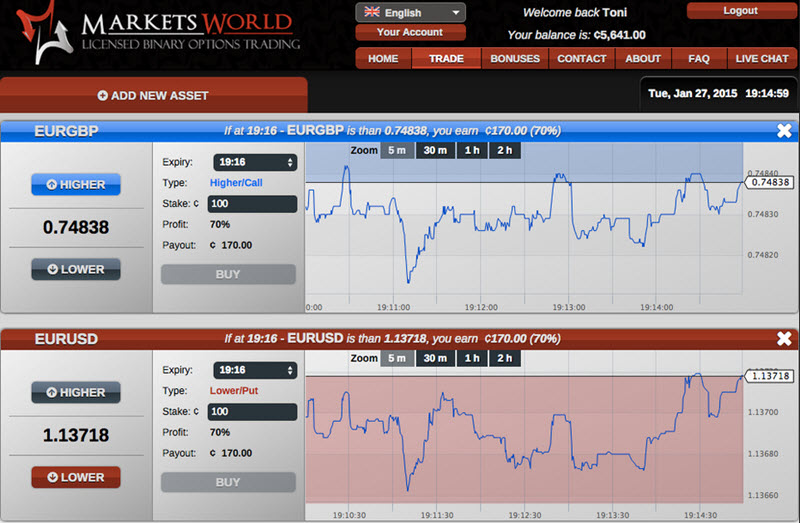The world of binary options trading is fraught with risks and rewards. For the discerning investor, understanding the nuances of binary options and identifying a reputable broker is paramount to mitigating risks and safeguarding one’s investment. This article delves into the realm of binary options brokers and outlines key criteria to consider in your quest to find a broker that best aligns with your trading goals.
Contents
Binary Options Trading: A Brief Overview
What are Binary Options?
Binary options are a financial instrument that allows investors to speculate on the price movement of an underlying asset, such as stocks, commodities, or currencies. Essentially, one is betting on whether the price of the asset will be above or below a certain point at a specified time in the future.

The Role of Brokers
Binary options brokers serve as intermediaries that provide investors with access to the markets where these options are traded. They offer trading platforms and are responsible for the execution of trades. A broker’s platform, tools, and services are crucial factors that can greatly influence an investor’s trading experience.
Regulatory Compliance and Licensing
The Importance of Regulation
One of the most critical aspects to consider when selecting a binary options broker is whether a recognized financial authority regulates them. Regulation ensures that the broker adheres to stringent standards regarding customer protection, transparency, and fair trading practices.
Licensing Bodies
It is prudent to opt for brokers regulated by reputable financial authorities such as the US Commodity Futures Trading Commission (CFTC), the UK’s Financial Conduct Authority (FCA), or the Cyprus Securities and Exchange Commission (CySEC). These bodies are known for their rigorous regulatory standards.
Evaluating the Trading Platform
User Interface and Tools
A broker’s trading platform should be user-friendly, with an intuitive interface allowing seamless navigation. Additionally, the platform should provide robust tools, such as charts and indicators, essential for analyzing asset prices and making informed trading decisions.
Mobile Trading
In the modern trading era, having the ability to trade on the go is essential. A good binary options broker should offer a mobile trading option. Ensure their mobile platform is as functional and efficient as their web-based platform.
Range of Assets and Payouts
Asset Index
A diverse asset index allows for greater flexibility in trading. Consider a broker that offers a wide range of assets, including currencies, commodities, stocks, and indices.
Payout Percentage
The payout percentage is the return on investment for a winning trade. Look for brokers that offer competitive payouts. However, be cautious of brokers that offer exceedingly high payouts, as this might be a red flag for lack of credibility.

Customer Support and Educational Resources
Availability and Responsiveness
Customer support is a vital aspect of any brokerage. Ensure that the broker offers multiple channels for support, such as phone, email, or live chat. The support team should be responsive and capable of addressing any concerns or issues that might arise.
Educational Content
For novice traders, educational resources are invaluable. A reputable broker should provide educational materials, such as articles, videos, and webinars, to help traders understand the intricacies of binary options trading and develop effective strategies.
Deposits, Withdrawals, and Fees
Deposit and Withdrawal Options
Evaluate the deposit and withdrawal methods available. A good broker should offer a variety of options, including bank transfers, credit/debit cards, and e-wallets. Additionally, check the processing times for withdrawals.
Fee Structure
Understand the broker’s fee structure. While some brokers might not charge a commission, they might have other fees, such as withdrawal fees or inactivity fees. Ensure that the fee structure is transparent and reasonable.
In conclusion, finding a reputable binary options broker is an intricate process that requires due diligence. By focusing on regulatory compliance, evaluating the trading platform, considering the range of assets and payouts, and assessing customer support and fees, you can make an informed decision that aligns with your trading objectives.
This article was last updated on: June 20, 2023
